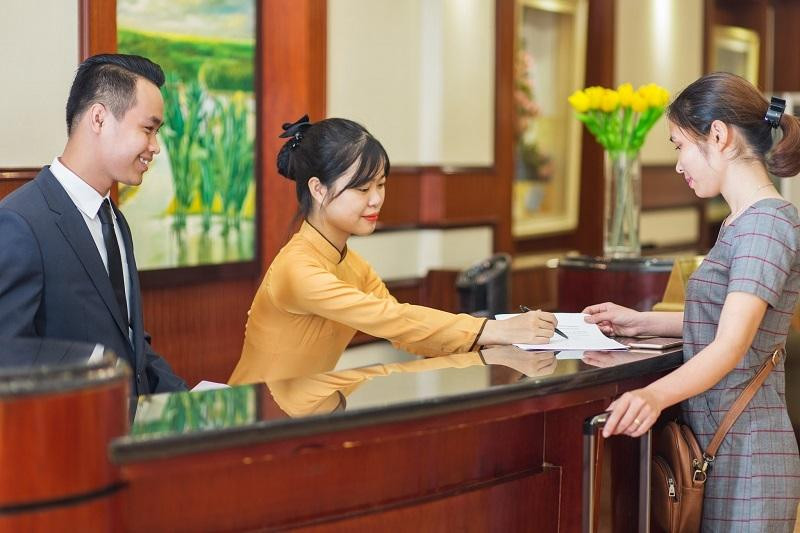
Nguyen Huu Tho, a former senior executive of Saigontourist, which runs six hotels, a travel firm, golf course and a school, spoke at a recent workshop on human resource development for the tourism industry in the new normal.
He said that some years ago, the Royal Caribbean Group, which owns the world’s largest cruise ships, needed 2,700 workers. It cooperated with Saigontourist to train and provide 1,700 workers to Quantum of the Seas. After a period, he was invited to the ship to see how Vietnamese staff worked.
He went aboard and could not find any Vietnamese. Only when he was having breakfast did he see a Vietnamese, a cleaner on the ship.
Tho came to a conclusion that Vietnam would fail to develop tourism, even with beautiful buildings and landscapes, if it did not have a skilled workforce. He stressed that workers in the tourism industry need to be trained well to compete internationally.
Vu The Binh, chair of the Vietnam Tourism Association (VTA), said that the lack of skilled workers even occurred in the most prosperous period (2019). The workforce developed massively with no clear direction and no strict management system. And professional standards were not observed.
When the Covid-19 pandemic broke out, the tourism workforce became even weaker.
“Training is very necessary. But the problem is that even in the most prosperous period we could not do this well, let alone now when the industry is weaker because of the pandemic,” Binh said.
Deputy General Director of the Vietnam National Administration of Tourism (VNAT) Pham Van Thuy said up to 80 percent of workers in the tourism industry have changed jobs.
As Vietnam has reopened tourism, some workers have returned while others have new jobs with better incomes.
Nguyen Hong Hai, CEO of Dan Chu Ha Noi Trade and Service, which runs Hotel de l’Opera Hanoi, said the total number of workers at the hotel in some periods was below 60. Only 30 percent of their workers had a job and they worked in rotation, with their income dropping by 35-45 percent.
As of February 2022, the number of workers of the hotel had declined by 40 percent.
According to Hai, workers say they will return when they can work full time. Some of them say they will return if the hotel increases salaries. But the company cannot satisfy all the requirements as it is facing difficulties. There is a difference in workers’ expectations and offered salaries.
Hai warned that in such a difficult situation, hotels and tourism firms have to compete fiercely to recruit workers.
Le Anh Tuan, director of the Training Department under the Ministry of Culture, Sports and Tourism (MCST), said there are 278 schools that train workers for the tourism industry, including 101 universities (4-year training), 110 junior colleges (3-year training) and 67 intermediate schools.
MCST has proposed that the Ministry of Labor, War Invalids and Social Affairs create seven sets of national professional skill standards in tourism and 13 sets of outcome standards.
Tuan said many problems still exist. First, the number of trained workers has increased, but untrained workers still account for a large proportion of the total.
Second, an imbalance in personnel still exists.
Third, job hopping occurs.
Fourth, professionalism and sensitivity of workers remain inadequate.
Fifth, problems in accessing the 4.0 industrial revolution remain.
Ngoc Ha